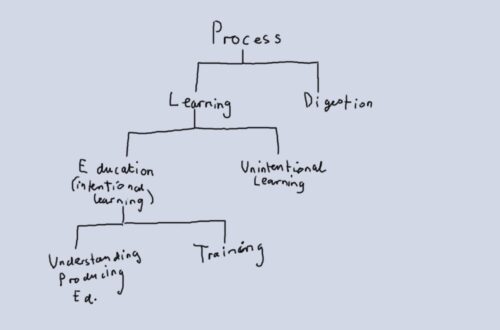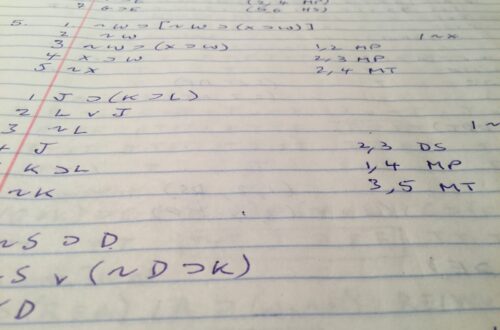Here is a kind of statement:
If A, then C.
The statement is called a hypothetical statement and it has two parts joined together by “if…,then…” In the statement above, A is called the Antecedent and C is called the Consequent. We use these kinds of statements all the time:
“If I don’t get a move on, I’m going to be late”
“If there’s milk in the fridge, then you can have it.”
The antecedent is sometimes called the sufficient condition and the consequent is sometimes called the necessary condition. So, how does this kind of statement work in arguments and how can we understand what the difference between those conditions?
Imagine that you enter a room knowing the following: there exists a kind of creature called a bottle-kicker. Whenever a bottle-kicker is in a room with a bottle, he will kick it over.
So, you enter the room and see a bottle-kicker standing there. Will the bottle be standing or not? It won’t. The bottle-kicker will have kicked the bottle over.
This is what we mean by a sufficient condition. You don’t have to see the bottle to know that the bottle-kicker will have kicked it over. Analogously, consider the following statement:
“If you study hard, then you will get good grades.”
Now, what if you did study hard and you are handed your graded work? Will you have a good grade? You probably do not need to look – you already know you got a good grade.
If you understand this, you know how to use an argument called modus ponens. The argument goes like this:
- If A, then B.
- A.
- Therefore, B.
For example,
- If there is a bottle-kicker in the room, then the bottle will be kicked over.
- There is a bottle kicker in the room.
- Therefore, the bottle has been kicked over
Back to the room. Now imagine walking in the room and seeing the bottle. It is standing upright. What do you know from this? Well, since whenever the bottle-kicker is in the room, he will always knock over the bottle, we know that he cannot be in the room. If he was in the room, the bottle would not be standing up.
If you understand this, you know how to use an argument called modus tollens. The argument goes like this:
- if A, then B.
- Not B.
- Therefore, Not A.
For example,
- if there is a bottle-kicker in the room, then the bottle will be kicked over.
- The bottle has not been kicked over.
- Therefore, there is no bottle kicker in the room
So far so good. However, it is not always the case that when we walk into the room we can know something from what we see. Imagine going into the room and seeing the bottle lying on its side. What do you know from this? It is tempting to say that we know that the bottle-kicker must be in the room, but think for a minute: is a bottle-kicker the only thing that knocks over bottles? Plainly not. Bottles get knocked over all the time by all sorts of people and things. Accidents happen. So, just because the bottle is knocked over it does not mean that it has been knocked over by Mr Holloway (or any other bottle-kicker who is in town).
This is an invalid argument form called affirming the consequent. It looks like this: If A, then B. B. Therefore, A. (if there is a bottle kicker in the room, the bottle will be kicked over. The bottle has been knocked over. Therefore, there is a bottle-kicker in the room). It does not follow from the bottle being knocked over that there is a bottle-kicker in the room.
Okay, let’s return to the room one more time. This time you do not see the bottle-kicker in the room. He is not there. Will the bottle be standing or not? The answer is: we do not know. Though the bottle-kicker is not in the room, you cannot tell from this fact whether the bottle is standing. This is because something else might knock over the bottle.
This is another invalid argument form called denying the antecedant. It goes thusly: If A, then B. Not A. Therefore, Not B. (if there is a bottle-kicker in the room, then the bottle will be kicked over. There is no bottle-kicker in the room. Therefore, the bottle has not been knocked over.)
I hope you enjoyed this simple little exposition of sufficient and necessary conditions. Come back to HQ for more.



